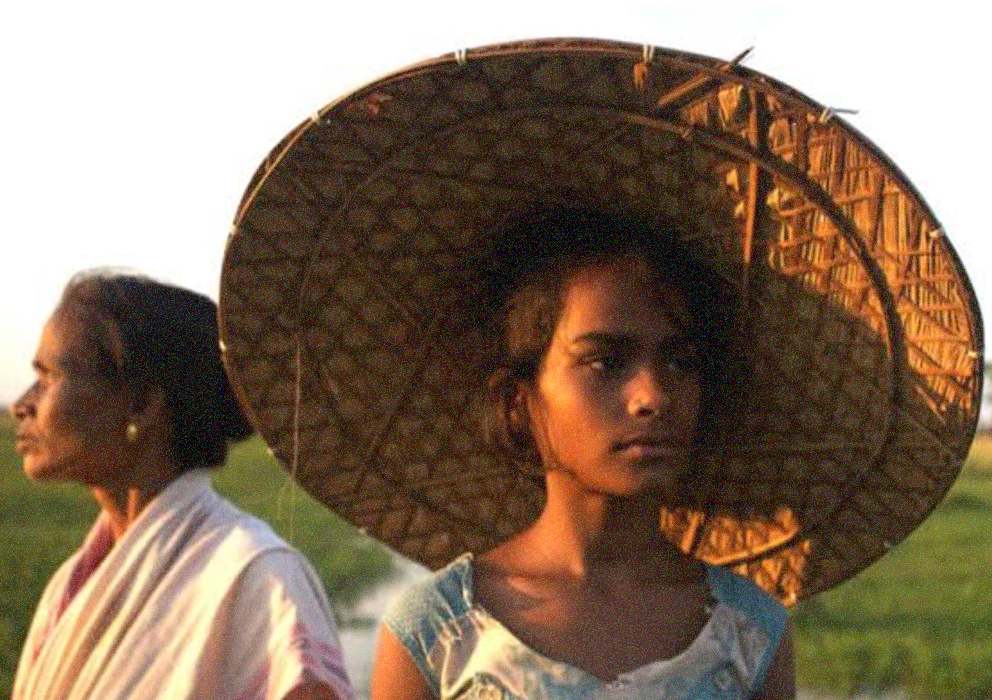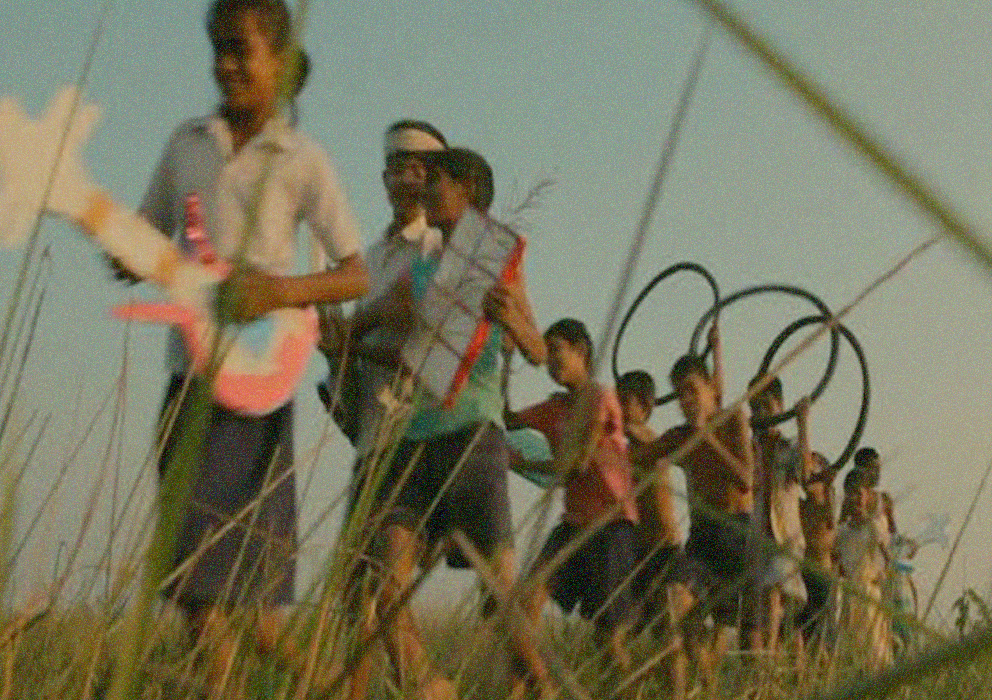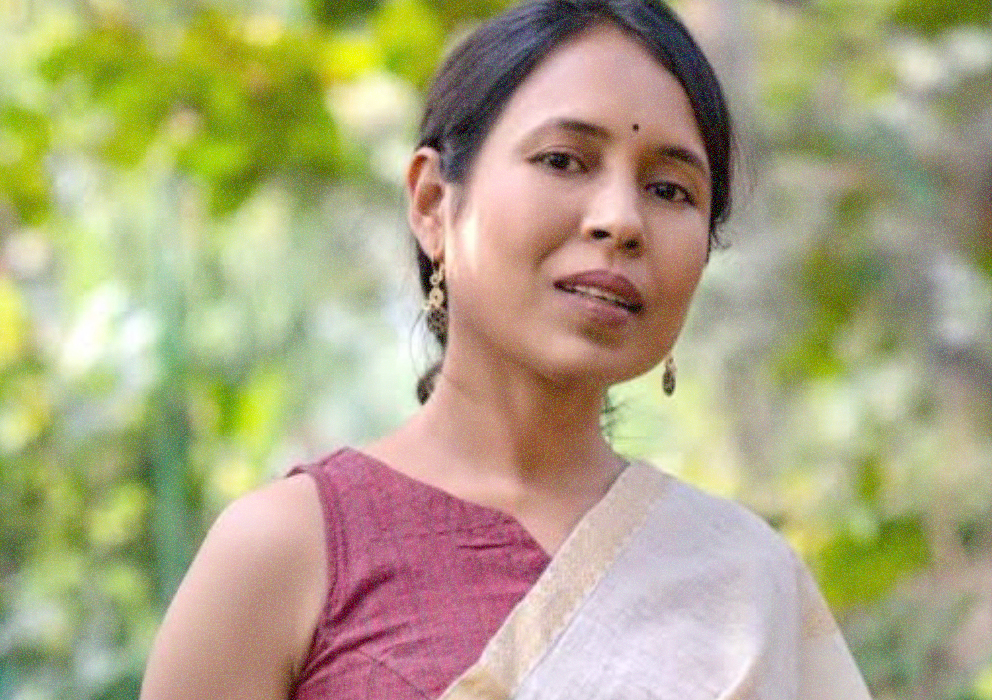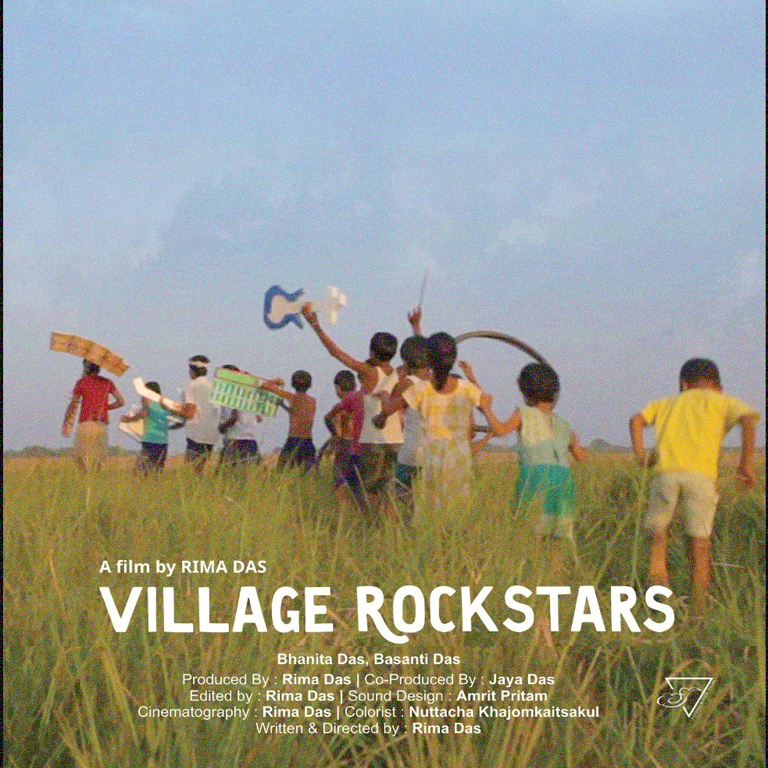Village Rockstars is an Assamese language drama by Rima Das that was released in 2017 to great acclaim. A film purportedly highlighting adolescent aspiration and rural poverty in the beautiful surroundings of a small town in Assam, India, seems contrary to expectations. One expects films like this to contain a predictable structure of obstacles and a stirring climax of transcendence. But it is actually free from the retstraints of plot and dramatic points with some scenes revealing nothing but the tranquillity and inescapability of life in a rural area.
 The story features 10-year-old DHUNU (Banita das), living with her widowed mother (Basanti Das) who earns money by selling betel nuts and farming their land, along with her elder brother and pet goat. One day while out helping her mother she is inspired by a band performing at a local event. She then tries to persuade her friends to think of having their own rock band. The village folks find it absurd. But her passion can still be seen when she shows her brother a rock band in a comic book borrowed from a school friend. She tries to build hopes amongst her friends.
The story features 10-year-old DHUNU (Banita das), living with her widowed mother (Basanti Das) who earns money by selling betel nuts and farming their land, along with her elder brother and pet goat. One day while out helping her mother she is inspired by a band performing at a local event. She then tries to persuade her friends to think of having their own rock band. The village folks find it absurd. But her passion can still be seen when she shows her brother a rock band in a comic book borrowed from a school friend. She tries to build hopes amongst her friends.
Dhunu spends her most of the time with boys of her age, going to government-run primary school, climbing on trees and lying on the muddy tall lokasa grass that constantly caressies them under grey open skies. Dhunu is warned by some women that the society will abandon her if she accompanies the boys. But Dhunu’s sinewy, agile mother dares to oppose the culture as and quietly champions her daughter, telling others that no one can scold or harass her. She even holds Dhunu's hand, teaching her to swim across the length of a fierce muddy pond. She doesn’t want her to be afraid to learn to swim and drown in the floods like her father.
 Dhunu enjoys listening to her grandpa telling stories under the tree and learns of the epic story of Mahabharata while dreaming of one day owning her own guitar. She begins to earn money by helping people pluck betel nuts while saving up to buy a guitar. However one day when she gets her period for the first time, the neighbourhood women dress her up traditionally and smear her with vermillion. They force her to undergo an entourage of rituals and warn her that the days of her hanging from trees are over. But the following scene, strong and tough Dhunu can be seen blissfully hanging from the gorgeously expansive tree which she climbs every day.
Dhunu enjoys listening to her grandpa telling stories under the tree and learns of the epic story of Mahabharata while dreaming of one day owning her own guitar. She begins to earn money by helping people pluck betel nuts while saving up to buy a guitar. However one day when she gets her period for the first time, the neighbourhood women dress her up traditionally and smear her with vermillion. They force her to undergo an entourage of rituals and warn her that the days of her hanging from trees are over. But the following scene, strong and tough Dhunu can be seen blissfully hanging from the gorgeously expansive tree which she climbs every day.

Rima Das, a self-taught filmmaker wrote, produced, directed and edited this low budget Indian indie that gives tribute to the people and the place where she belongs, shooting in the style of a documentary, capturing the floods of Assam that devastates livelihoods every year. Wooden creaky boats over backwaters and tributaries of the Brahmaputra, which Dhunu exercises with ease, becomes a vanity, a physical manifestation of hope. Even in tragedy, storms and floods, nature presents itself with the possibility that its beauty and might will somehow see Dhunu and her mother through.
The film takes on a very simple poetic form that has its own rhythm, language, passion, aspiration. Bhanita Das as Dhunu is a non-professional actor but a firecracker on screen. This movie is not a kind of poverty showcase but the audience are meant to explore the beauty of rural life and empathise with the joy of its people. Dhunu and her friends give us moments to live in childhood and experience the small world with their innocence. They never think they are anything less than blessed though they all have challenging moments of poverty. The story slowly unfolds a theme of female empowerment as it is a woman centric movie and shows the enmeshed relationship of mother and daughter.
The film premiered at the 2017 Toronto International Film Festival (TIFF). It received the Best Feature Film ‘Swarna Kamal’ award at the 65th National Film Awards in New Delhi, India and was selected as India’s official entry to the 91st Academy Awards.
India’s rural areas get new life in Village Rockstars.

Cast: Bhanita Das, Basanti Das, Manabendra Das, Boloram Das, Rinku Das, Bishnu Kalita.
Dhanashri S. Gund

